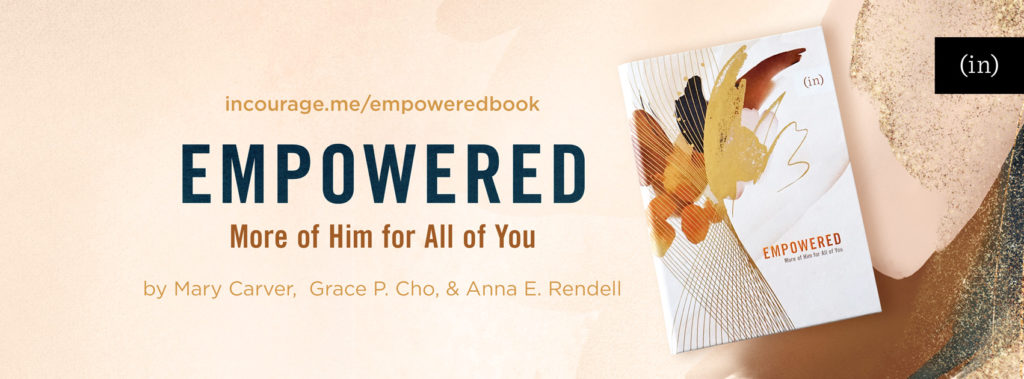Each year at the start of the Advent season, I find myself thinking about Mary, the mother of Jesus. This teenage girl was to be a womb for God, the mother of His one and only son. That day when the angel Gabriel came to her, I imagine light refracting in all directions in her humble home in Nazareth. I have three daughters hovering in the tween/teen years, close to Mary’s age. I can’t help but think about what it would be like if one of them received such outrageous and magnificent news from an angel wrapped in light.
Mary’s heart must have been racing like half a dozen horses galloping in her chest when Gabriel called her “the favored one.” I imagine she trembled when the angel revealed that her body would embody God Himself.
Pregnancy and birth is a season of uncertainty. The body of a pregnant mother stretches and morphs daily to build a sacred space for new life. I remember my midwife telling me that pregnancy is like your body climbing a mountain even when you’re not moving. (That certainly explained why I was so often exhausted during my three pregnancies!)
There is pain and purpose wrapped up in each moment as a mother waits for her anticipated child to arrive. I found this to be true also for my friends who waited and anticipated through months of an adoption journey.
I am inspired by Mary’s brave response to the angel Gabriel in Luke 1:38 (ESV): “Behold, I am the servant of the Lord; let it be to me according to your word.”
There’s a distinct courage and unmistakable faith in Mary’s words even as she stands at the crossroads of so many unknowns. She risked her future with Joseph, her reputation, her life. Her “yes” was an invitation into a life of grief and glory.
After Mary’s encounter with the angel, she hustles to the hills to visit her older cousin Elizabeth, who is also pregnant as an angel predicted. (I like to call her Aunt Lizzie out of love and respect.) Aunt Lizzie was pregnant with John the Baptist, who was the cousin and forerunner of the Messiah in Mary’s womb. Aunt Lizzie was in her third trimester and Mary was in her first. Aunt Lizzie had been secluded for the first five months of her pregnancy, making this visit with Mary that much more meaningful. When the two women are united, the baby leaps inside Aunt Lizzie’s womb and she is filled with the Holy Spirit.
Aunt Lizzie offers up words of affirmation to Mary:
God has blessed you above all women, and your child is blessed. Why am I so honored, that the mother of my Lord should visit me? When I heard your greeting, the baby in my womb jumped for joy.
Luke 1:41-44 (NLT)
Mary needed Aunt Lizzie to provide confirmation, affirmation, and encouragement to her as the mother of the Prince of Peace everyone had been waiting for. She was to be the home for God wrapped in flesh. That was quite a job description for a teenager.
Aunt Lizzie needed Mary who would labor for her long-awaited Savior. She also needed a friend through her geriatric pregnancy, someone to celebrate and anticipate this long awaited birth with her.
Sometimes it takes another woman to help ground us and remind us of our God-given callings.
When I was a young mother, women like Serena, Michelle, Eunie, Chris, and Jane spoke life into me through our Bible studies and MOPS group. Today, as a writer, leader, and mom of girls, women like Jo, Tasha, Stephanie, Bev, and Vivian infuse me with courage and remind me of my gifts and calling.
Aunt Lizzie and Mary stayed together for three months. I imagine this was a sacred time when the two women delighted, commiserated, and prayed together, a sacred time of encouraging one another. These two chosen women — one older with wrinkles dancing across her cheeks, the other younger with eyes full of hope — were able to bear witness to His glory in each other. Mary probably stayed there in the hill country to celebrate the birth of John, who would also one day bear witness and affirm Jesus’ identity.
Friend, God designed us to bear witness to His glory in each other. We were not made to weather life’s storms or taste sweet victories alone.
Perhaps you are hurting today. Perhaps you are lonely and wondering if you really have what it takes to wake up tomorrow and continue on this life journey. Perhaps you are navigating loss, disappointment, and grief in this season. I want to encourage you to reach out, to connect, to find an Elizabeth or Mary among the women in your community.
Let’s choose to offer courage to each other. Let’s choose collaboration over comparison. Let’s bear witness to the glory of God in each other. Let’s be an Elizabeth or Mary to someone today. You and I were designed to flourish together.






